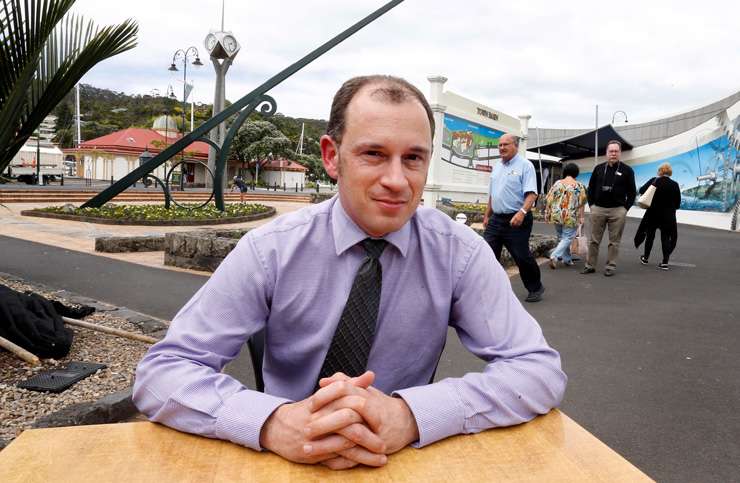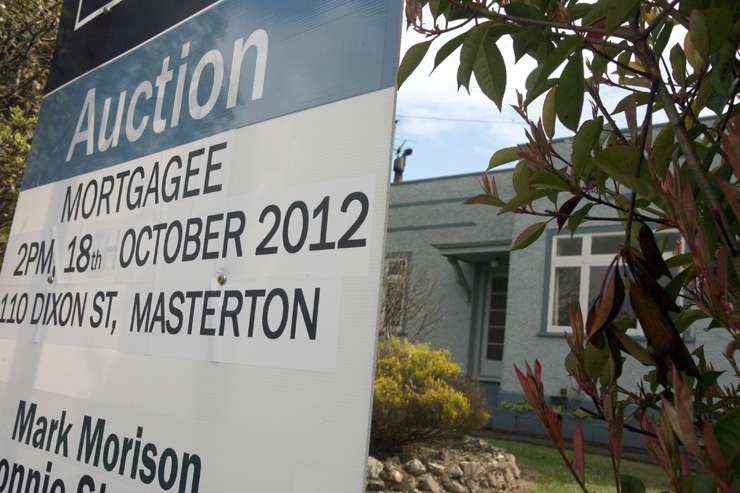With a possible recession looming next year the best comparison for what might happen in the housing market is the GFC.
The Global Financial Crisis began in 2007 with the collapse of the US sub-prime mortgage market which sent shockwaves around the world.
New Zealand went into recession in 2008 but commentators say the country fared better than many.
Gareth Kiernan, chief forecaster and director of Infometrics, says there was a collapse of finance companies in New Zealand prior to the GFC and with the global squeeze on funding economies worldwide stopped.
Start your property search
“There just wasn’t that finance available and it was reflected in our own property market as well.”
People with cash were in a stronger position to take advantage of falling prices and the increase in mortgagee sales.
The housing market went through a couple of years of up and down, Kiernan says.
“I think by 2009 you had some people jumping back into the market and going ‘okay, prices are down 10%, we’ve never seen that in New Zealand before, let’s get in there and take advantage of it.’
“But it was still another couple of years before the market really probably found its bottom and started to get that upward trend again.”
The boom in the market started in the main urban centres and rippled out from there, says Kiernan.
There was an initial focus on waterfront property but as the cycle continued places like Wairoa and Kawerau saw “massive” price gains.
That’s not likely this time, and Kiernan says he is concerned about how robust economic conditions may be across some provincial regions involved in the likes of farming and growing over the next 18 months or so.

Informetrics chief forecaster Gareth Kiernan says it took several years for the market to find its bottom in the aftermath of the global financial crisis. Photo / John Stone
“They’ve been a very good performer, you know, sort of the backbone of how well the New Zealand economy has done through the pandemic but conditions are much less favourable now and that could have negative flow on implications for how those property prices perform over the next year or two.”
James Wilson, head of valuation for OneRoof’s data partner Valocity, says anyone who owned and held on to an asset through the GFC emerged a winner.
“The equity in their asset is likely to be really good – those who have owned and could afford to own going through are in a good spot.”
New Zealand’s cautious banking system meant the country did not see a huge spike of mortgagee sales, though there were some.
But most people simply thought longer-term when the going got tough, he says.
“They didn’t have to sell, they weren’t over-leveraged, they were able to ride it out.
“In that sense, we didn’t have any significant losers in a housing sense in the last recession because the bulk of Kiwis were able to ride it through.”
The standout winners were those who had made their purchase a year or so before the GFC hit, Wilson says.
They were locked into higher interest rates but rates came down off the back of the GFC and stayed low.
“Those that fixed about a year before, they had good equity growth until things crashed so they had some equity in their asset and they were able to then refix their mortgage about a year or two after the GFC and make the most of those cheaper interest rates.”
What happens if a recession eventuates in 2023, however, is crystal-ball gazing, Wilson says.
For Kelvin Davidson, CoreLogic’s chief housing economist, every economic scenario involves winners and losers.
Anybody who lost their job in the GFC and maybe took a while to find another job were probably harder hit.
But a lot of people kept their jobs and mortgage rates came down so they probably did okay, he says.
“That’s an important context for now, too. A lot of people have suffered in Covid but a lot of people have actually done pretty well, too.”

Mortgagee sales in the months following the GFC spiked. Photo / New Zealand Herald
People who did well during the GFC were those who were able to pick up a bargain when prices fell.
Currently, house prices are about halfway through the downturn, Davidson says.
“They’ve fallen about 10%, they could fall 20% so maybe another 10% to go over the next six or seven months.
“Anybody who needs to sell or is looking to sell, they might take a bit of a hit.”
But Davidson says it’s important to bear in mind that even in a recession a lot of people sail through.
“The Reserve Bank is talking about a 1% decline of GDP in total.
“A useful way to think about that is the country’s income goes down 1% so if you think about that in a personal finance context, well, what if my income dropped 1%, is it a major?
“No, not really. It might not be great but you’d probably get through.”
The problem is some groups are disproportionately affected and while inflation affects everyone if someone earning $1m has to pay 7% more for groceries they might not care that much – but for someone on $50,000 7% matters a lot.
“Inflation does disproportionately impact less wealthy people and that’s an extra impact we have at the moment compared to after the GFC when inflation was lower.”









































































